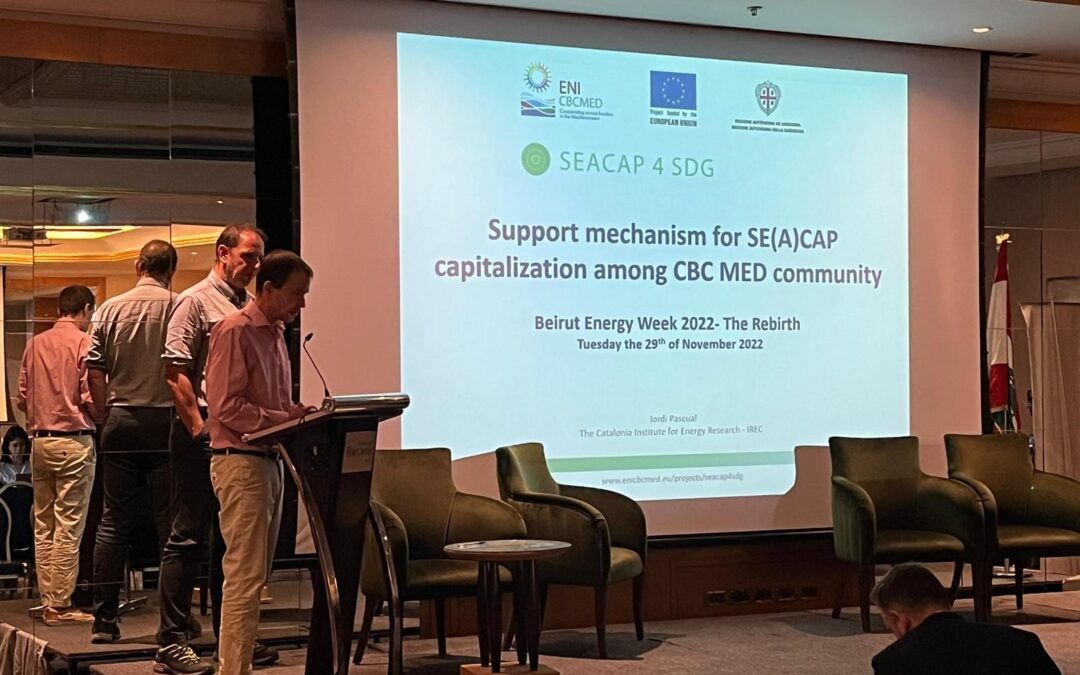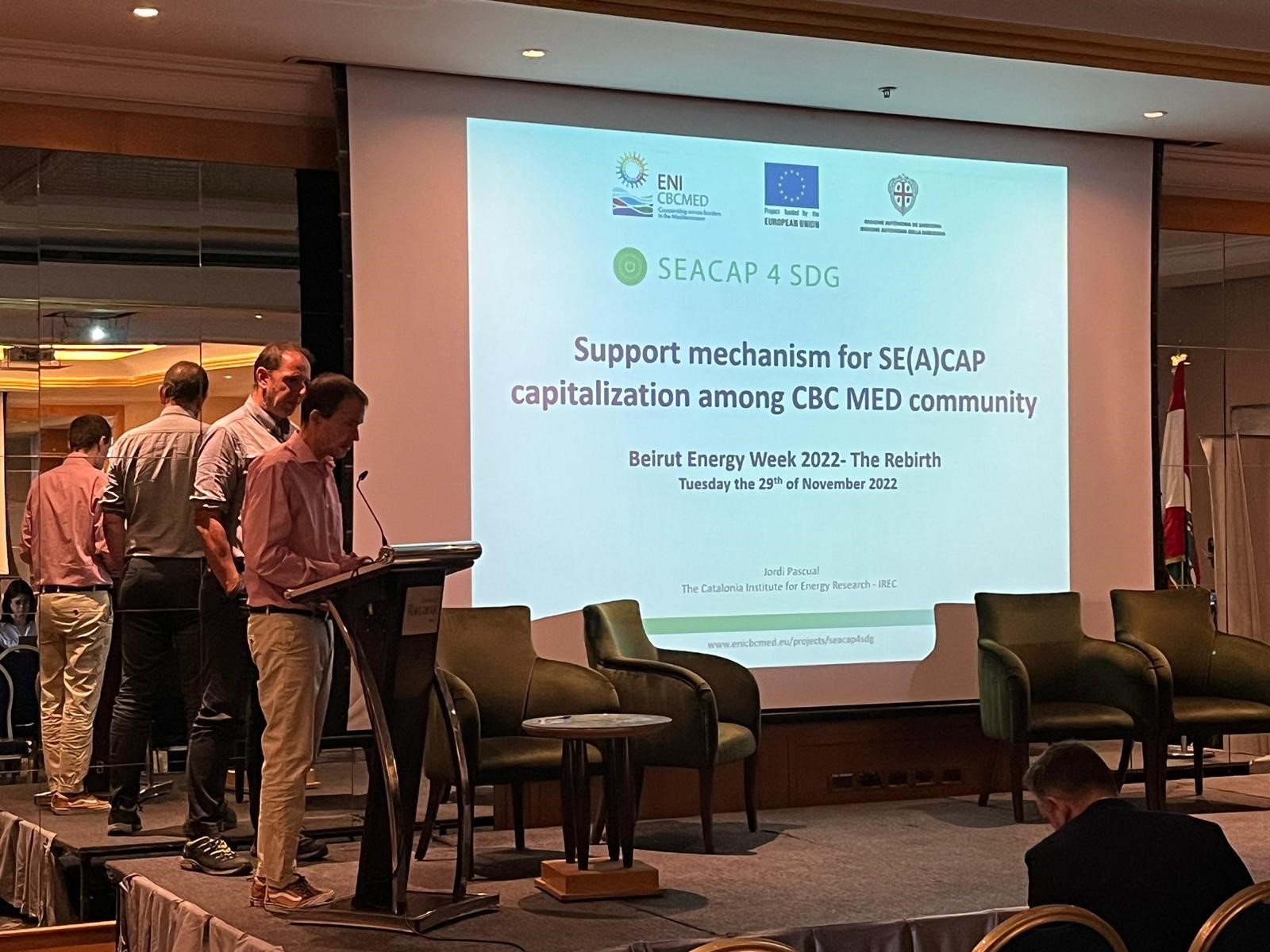
Support mechanism to foster the implementation of Sustainable Energy and Climate Action Plans (SECAPs) in the Mediterranean

Nowadays achieving decarbonisation and adapting to climate change constitutes a significant challenge, not only for nations but also for regions and cities. The continuous increment of temperature poses a clear challenge for cities and regions in the Mediterranean as they need to address similar issues in order to adapt and mitigate the effects of such changes. In addition, and considering that public administrations not only must set an example but are responsible of many relevant aspects in the city, the role of local authorities and the actions set in place by them became even more relevant. In that context, is only logical to promote the establishment of a common approach and the share of successful experiences that can encourage the implementation of further actions from the private sector.
In that context, the Catalan Research Center (IREC) – partner of LOCALISED – is part of an initiative launched in 2021, the SEACAP 4 SDG project, which fosters the implementation and improvement of Sustainable Energy Access and Climate Action Plans (SECAPs) to achieve Med integration through uniform adapted assessment and financing methods, for Sustainable Development Goals (SDG) in a smart society.
Thus, the SEACAP 4 SDG capitalizes on the outputs and outcomes of existing research projects, identifying characteristics to be generalized, and by adapting gained knowledge to maximize efficiency and effectiveness of energy refurbishment strategies adapted to local Mediterranean specificities, notably energy poverty. Specifically, the project supports up to 9 selected municipalities in implementing outcomes (tools, methodologies, and platforms) from 16 selected reference projects (SRP), to build capacity, improve their energetic plans and implement energy improvements by specific actions.
The support mechanism provided by the SEACAP 4 SDG project has two levels. The first level is to promote the engagement of at least 9 municipalities or group of municipalities to use the SRP TOOLKIT in their day-to-day work, with the aim of improving their energetic plans. The second level is to support 4 of these entities, the selected ones from the Southern shore of the Mediterranean, to use the sources for analysing detail measures in specific educational and health buildings, or other public buildings.
Authors of the article:
Catalonian Energy Research Center, Drio Emilio Hernandez, Soledad Ibañez Iralde, Jordi Pascual

Recent Comments